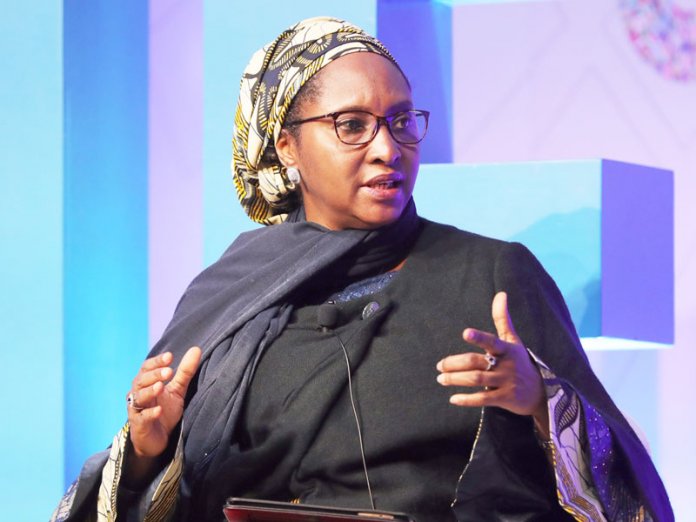
Deji Elumoye, ThisDayLive
Notwithstanding Nigeria owing $86.39 billion (N32.9 trillion) to external creditors, the nation will continue to borrow to finance infrastructural development, the Minister of Finance, Budget and National Planning, Mrs. Zainab Ahmed, said yesterday.
She also stated that a supplementary budget for 2021 was being prepared for submission to the National Assembly for approval in March.
In addition, the federal government may soon compel Ministries, Departments and Agencies (MDAs) to patronise locally-made vehicles.
Ahmed told reporters in Abuja that although the country has expanded its borrowing portfolio, it is still below 25 per cent of debt-to-GDP ratio and within borrowing limit.
She said: “The total borrowing of the country as of 31 of December (2020) is 21.6 per cent of the GDP. So, if we were not looking at adding the other category of loans that I mentioned, we don’t even need to increase that at this time. As of 2019, the debt-to-GDP ratio was 19.2 per cent, so only two per cent was added.”
According to her, though the loan issue is a touchy one, it is not out of place for government to borrow to stay afloat while striving to increase its revenue.
She explained: “There is a lot of sensitivity in Nigeria about the level of borrowing by the government and it is not misplaced. The level of borrowing is not unreasonable; it is not high. The problem we have is that of revenue. So, what we need to do is to increase revenue to be able to enhance our debt-to-GDP obligation capacity. If we say we will not borrow and, therefore, not build rails and major infrastructure until our revenue rises enough, then, we will regress as a country. We will be left behind, we won’t be able to improve our business environment and our economy will not grow. So, it is a decision that every government has to take.
“Our assessment is that we need to borrow to build our major infrastructure. We just need to make sure that when we borrow, we are applying the borrowing to specific major infrastructure that will enhance the business environment in this country.
“Again, we all have to work not just the federal government but state governments to increase our revenue to enhance our debt service obligations.”
She said care has to be taken to ensure that only projects that will enhance the business environment and yield more revenue into the treasuries of the country are embarked upon.
On the huge Chinese loans taken by the country and their effect on debt servicing, Ahmed said: “I think it’s useful to look at the budget for each year; look at the revenues, look at the expenditure, if you take out the new borrowing, really, what will the size of the budget be? How much can the government spend?
“So, in terms of the pressure of debt service, by the time the revenue comes up, that should be lower. But there are some things you need to do now, to ensure that revenue comes up. So, we need to keep that in mind that if the economy grows and revenues improve, then debt service to revenue, in future, should be lower.”
Ahmed stated that a supplementary budget will soon be presented to the National Assembly for COVID-19 palliatives while by June, there will be a mid-year review of the 2021 Appropriation Act.
According to her, the Federal Executive Council (FEC) will soon come up with a policy mandating MDAs to buy locally-manufactured vehicles.
She also listed measures by the federal government to control inflation to include reducing duties on imported vehicles from 35 per cent to 5 per cent with a view to lessen the high cost of transportation, which in turn, impacts on inflation.
She added that patronising locally-made vehicles will mitigate against dumping due to reduced duties.
She also expressed the federal government’s commitment to purchasing locally-made goods and vehicles and to engage state governments in ensuring that they do the same so as to encourage local production.
On the new import duty policy, Ahmed said the Nigeria Customs Service had already directed all its outposts to commence its implementation.
“Nigerian Customs has reviewed these guidelines and has notified all its operational posts to start implementing the new rates. So, it has taken effect.
“The Federal Ministry of Industry, Trade and Investment has just finished a review of automated policy, which has been running now for seven years. I must say that the policy has not been reviewed before. So, this is the first review that is being done and the essence of the review is to see whether it has achieved the designed targets,” Ahmed stated.


















































